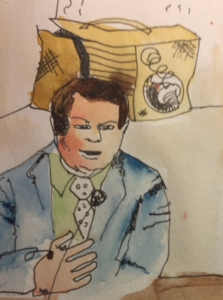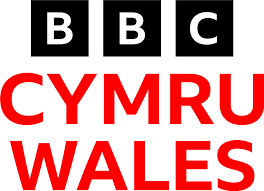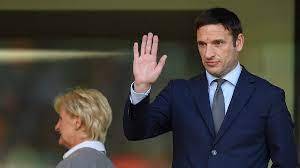- Repeating on you… - 4th March 2026
- History man - 3rd March 2026
- British Broadcasting Complaint (BBC) - 3rd March 2026

During 23 years with the BBC and 40 years in journalism, our Editor Phil Parry, was always taught DO NOT USE JARGON AND SAY WHAT YOU MEAN!
Here, though, he looks at more evidence of how the opposite is now the case, and the use of ‘business-speak’ is growing ever stronger – with it even leading the field in the media world.
Sadly there is today, more evidence of the increasing use of mindless ‘business-speak’, and this time from an executive with a journalistic background, so he should know better!
In announcing a trading update for his sprawling media firm, David Montgomery (nicknamed ‘Rommel’) said: “Given our scalable infrastructure the company will continue to seek to take advantage of further acquisitions that release significant synergies… Our greater scale, combined with significant investment in innovation and automation, underpin our accelerating transition to a multi-platform content business, focused on creative and expert talent”.

I am left scratching my head over this, but I THINK it means he wants to buy more things, and using money as well as machines, move more to sharing stuff online!
But Mr Montgomery is not alone in graduating to business-speak gobbledygook in the media world.
Charles Yardley, (Chief Executive Officer [CEO]) of the Evening Standard in London, was evidently very proud of a promotion in his newspaper, and told staff: “We should celebrate our continued cover wrap success this fiscal which has already yielded a huge £1.3 million.


“Exclusive wins for Virgin Atlantic, British Heart Foundation, and Strike were significant drivers across January. We will look to continue momentum and drive our big ticket solutions across this second quarter”.
“…social… really brings this product (the Evening Standard magazine ES) in a meaningful way that paves a digital forward thinking path for growth”.

The boss of social media outfit Threads, Adam Mosseri, declared about the decline in popularity of posts about politics or news: “…we’re not going to do anything to encourage those verticals”.
The Chief Executive Officer (CEO) of media group Reach PLC (which Private Eye calls ‘Retch’), Jim Mullen (who four years ago was awarded £949,999 in ordinary shares in the company), is also no stranger to the new language and model of journalism.
In an interview on LBC he declared about his papers: “page views (are the) sole aim…we don’t talk about engagement and quality”.

Quite apart from this kind of language being totally MEANINGLESS, it makes my blood boil that a journalistic publication can be called a ‘product’, or that it can be a ‘multi-platform content business’!
I would suggest that for anything read by the public “engagement and quality” is actually quite important…
Sadly, though, this follows a disturbing tradition of executives giving brain-dead business-speak in the media world, and regrettably I have seen how senior figures in the Welsh media as well as sport, have played a significant part in this phenomenon.
 Look, for example, at an announcement from Rhuanedd Richards, (formerly CEO of Welsh nationalist party Plaid Cymru [Plaid], but now the ‘Director of Content and Services’ for BBC Cymru Wales [BBC CW]). Ms Richards had thanked a man on social media for congratulating her on getting the job, despite the fact that he had been placed under police investigation, and the nationalist paper he went on to found, only lasted EIGHT months!
Look, for example, at an announcement from Rhuanedd Richards, (formerly CEO of Welsh nationalist party Plaid Cymru [Plaid], but now the ‘Director of Content and Services’ for BBC Cymru Wales [BBC CW]). Ms Richards had thanked a man on social media for congratulating her on getting the job, despite the fact that he had been placed under police investigation, and the nationalist paper he went on to found, only lasted EIGHT months!

She has also been effusive in her praise of the controversial former Editor of BBC Cymru Radio Wales (RW) Colin Paterson, who was ‘promoted’ amid a fanfare of publicity. This came even though his station secured record low audience figures, and he conducted an affair with a married presenter, when his officials had commissioned a programme she fronted.
But through it all she seems to have absorbed the impenetrable language of the boardroom.
She has declared for example: “We must make more impact and become more relevant to more people rather than super-serving the same people”.
Let’s unpack this a bit, as far as we can. It takes a little time, but I BELIEVE the first part means that audiences should want to WATCH the BBC CW television material, LISTEN to its radio output, and READ what it has to offer online.


Yet surely a broadcaster would want to do this anyway, so it shouldn’t need to be stated at all!
Or am I just being thick?!
Perhaps it is something to do with when media people are absorbed into senior management.
But it isn’t just in the worlds of journalism and broadcasting that this kind of nonsense seems to prevail.
It is particularly prevalent in the sports as well as business arenas.
For instance let’s examine in a bit more detail (if you can bear it!) a pronouncement from the man in charge of football’s governing body in Wales, the Football Association of Wales (FAW), Noel Mooney, when he was giving details of a new ‘governance’ strategy.

He said: “The FAW is at the start of an exciting journey that will see us become a thought leader in world football”.
The phrase, though, is perplexing.
What exactly does ‘thought leader’ mean?! !s it just thinking about it, but not actually doing it?
No idea.

The boss of investment giant Abrdn (note the apparently trendy lack of vowels), Stephen Bird has followed suit.
He has been described as “jargon-addicted” in the Sunday Times (ST), and assembled a group with three “vectors”, using language which I also find completely baffling!
But perhaps these sort of comments establish a “path for growth”, because at a time when journalism is a “product” or a “multi-platform content business”, and where people shouldn’t be ‘super-served’, yet it is an “exciting journey” to become a “thought leader”, they seem to be a “driver”…
Other key phrases though might need interpreting (maybe alongside these).

For instance if your boss tells you: “Have you got five minutes?”, you should worry.
You are in deep, deep trouble…
The memories of Phil’s remarkable decades long award-winning career (when using ‘jargon’ or ‘business-speak’ was a complete no-no) as he was gripped by the rare neurological disabling condition, Hereditary Spastic Paraplegia (HSP), have been released in a major book ‘A GOOD STORY’. Order the book now!

Regrettably publication of another book, however, was refused, because it was to have included names.
Tomorrow – how disturbing news that Huw Edwards, has been charged with making indecent images of children, highlights major questions now about why he became a hero to some in the Welsh nationalist and independence communities.










